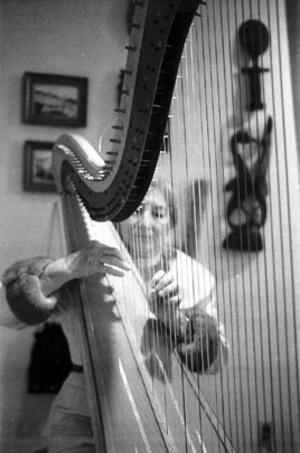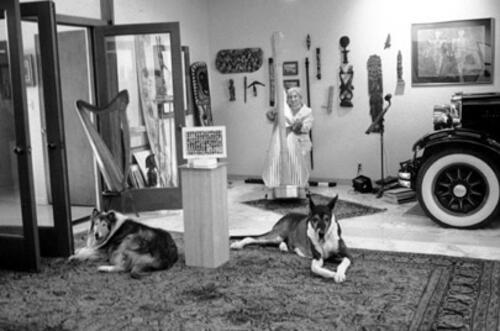Bernice Mossafer Rind
A Child Prodigy
“At two-and-a-half I wanted to be a ballerina, but my father said ‘No, no, no... a Jewish girl can’t go do that. They travel all over the country. She’s got to stay home.’ So then my mother was thinking, ‘We don’t want piano. Everybody plays the piano.’ So she decided on the harp.
“They called me a child prodigy. A harp virtuoso. Well, you don’t really know anything other than you go to school and then you practice and you concertize, and you don’t really have any companionship. Until I went to college when I was 15, I didn’t know any slang expressions because I was always talking to adults. There were a lot of things I didn’t know.
“But I never complained to my mother. Then I realized also that my mother, my little brother and I were living in California but my dad and my older brother were up here in Seattle. And I didn’t want to split the family up. There wasn’t anything in the world that was worth doing that for. And I said, ‘I want to go back to Seattle. I want to graduate from elementary school. I want to go to Sunday school. I want to go home.’”
Sephardic Inspiration
“Harp music has a rather limited repertoire. And I felt that the harp could do so much more. About the time I semi-retired at age 23, I recorded my own composition, Rhapsodie in F Minor. It is very demanding. It brings out a lot of the harp that people don’t really hear. It’s also very Oriental, so it’s very close to my heritage. My teacher used to say, ‘You play your music is as if you’re reincarnated.’ I thought, ‘Well, that’s legitimate as a Sephardic Jew.’
“I was about 13 when I wrote it for my mother for Mother’s Day. And then it was published when I was 17, and it won me some awards. It’s kind of special because of the memory. My mother and I were very close. More than just ordinary mother and daughter because she was my manager, my impresario. And she worked very hard at it besides trying to raise a family, and being involved in the community.”





Can you link to the score of her composition?
Very interesting! I just started to write for Harp when I volunteered for the Mizmor Team of Benai Emunah Institute, and started learning how to read and write Ivrit at the same time. I occasionally go to Bernices Klezmer Jam in Seattle, but the music from the original melodies of the Bible are considered Sephardic. I believe the Ruach HaKodesh gave melodies to Mosheh, King David, and the Prophets, so there is a special anointing on the original melodies. I titled Mizmor 24 Mi Hu Zeh Melekh HaKavod? Available at www.BradshawMusicBooks.com